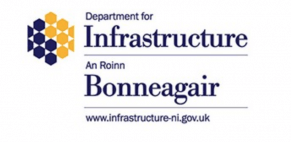Code of Conduct
Code of Conduct
Personal Conduct
The instructor will seek at all times, to comply with the law and in particular legislative requirements related to discrimination, data protection, trading standards, health and safety in the workplace and road safety.
The instructor will give consideration and be aware of the impact overuse of particular areas may have on residents,
The instructor will refrain from using DVA premises for the purpose of practice.
The instructor will at all times, treat clients with respect and consideration
Offers of gifts, benefits and hospitality to the client should be avoided in order to prevent any undue misunderstanding or offence.
The instructor, being in a position of trust should avoid any behaviour which encourages a physical or emotionally dependant relationship to develop with a client.
the instructor will maintain his skills and knowledge to at least the required minimum standards and endeavour to avail of development opportunities.
The instructor will avoid physical contact with a client except in an emergency.
The instructor client relationship must be professional at all times and unnecessary contact via phone texts, email or any other means should be avoided.
The instructor will not make comments or converse with the client about issues that could be deemed inappropriate, discriminatory, lewd or offensive.
The instructor will not make or receive phone calls whilst conducting a lesson.
The instructor will ensure that the vehicle is licenced, insured and fit for purpose in that it is roadworthy, clean and suitable for tuition to take place.
The instructor will safeguard and be able to account for any monies paid in advance by the client in respect of lessons, test fees or for any other purpose. Details of payments will be made available to the client on request.
The instructor will provide a copy of this Code of Conduct, or highlight where it is available, to the client.
The instructor, on or before the first lesson, should provide clients with a written copy of their terms of business to include;
- Legal identity of the school/instructor with full address and telephone number at which the instructor or their representative can be contacted,
- the price and duration of lessons,
- the price and conditions for use of a vehicle for any practical test and any related booking fees,
- the procedure for complaints,
- details of the refund policy, and
- should ensure that their valid certificate is clearly displayed.
The instructor should check a client’s entitlement to drive/ride the vehicle and their ability to read a number plate at the statutory distance on the first lesson and before driving/riding the vehicle, repeated at suitable intervals.
When presenting a client for a practical test the instructor should ensure that the client has all the necessary documentation to enable them to take the test and show that the vehicle is roadworthy. Further, ADI’s should ensure the vehicle is prepared so that DVA supervising examiners can accompany the test if necessary.
Instructors will advise clients when to apply for their theory and practical tests, taking account of local waiting times and forecast of the clients’ potential for achieving a consistent standard of safe driving/riding.
The instructor will not cancel or re-arrange a test without the client being informed. In the event of the instructors decision to withhold the use of the school vehicle for the test, sufficient notice should be given to the client to avoid loss of the DVA test fee.
The instructor should at all times, endeavour to teach the client correct knowledge and skills according to the recommended syllabus.
The instructor should ensure that any discussions that occur with the client are treated in the strictest confidence and not disclosed to uninterested third parties.
Advertising
The advertising of tuition shall be factual, honest and not misleading; claims made should be verifiable and comply with codes of practice set down by the Northern Ireland Trading Standards Service.
Instructors should comply with the guidance pertaining to the DVA guidance on the use of the DVA logo.
Advertising that refers to clients’ pass rates must be factual and verifiable.
Advertising pass rates should not be open to misinterpretation and the basis on which the pass rate has calculated should be made clear.
Conciliation
Complaints by clients should be made to the instructor/ school in the first instance and follow the complaints procedure issued by the instructor or school.
Failing agreement or settlement of a dispute reference may be made to the DVA to consider the matter and advise accordingly.
Queries relating to this Code of Conduct should be directed, in writing, to the Registrar, BSU Section, DVA HQ Balmoral Road, Belfast.
This guidance has been issued in accordance with Article (52)(4)(d) of The Road Traffic Order (Northern Ireland) 2007.



